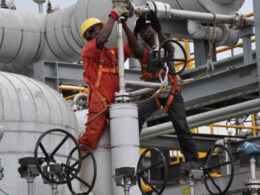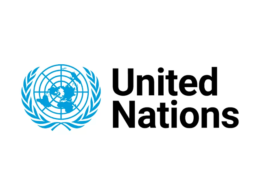The event follows the launch of the International Advisory Body for Submarine Cable Resilience by the ITU and the International Cable Protection Committee (ICPC) in November 2024.
Abuja, Nigeria – Nigeria is set to host 50 countries at the inaugural International Submarine Cable Resilience Summit in Abuja, bringing together over 250 key stakeholders to discuss solutions to global submarine cable disruptions.
The International Telecommunication Union (ITU) Deputy Secretary-General, Tomas Lamanauskas, announced the summit during a press conference, highlighting its importance in safeguarding vital telecommunication infrastructure.
The event follows the launch of the International Advisory Body for Submarine Cable Resilience by the ITU and the International Cable Protection Committee (ICPC) in November 2024. The Advisory Body, co-chaired by Nigeria’s Minister of Communications, Innovation, and Digital Economy, Dr. Bosun Tijani, and Prof. Sandra Maximiano, Chair of the Board of Directors of Portugal’s National Communications Authority (ANACOM), held its first virtual meeting in December 2024 to prepare for the summit.
Strengthening Cable Infrastructure
Speaking at the press briefing, Dr. Bosun Tijani emphasized that submarine cable infrastructure is crucial to Nigeria’s ambition of building a $1 trillion digital economy. He stressed that protecting and improving this infrastructure is essential for economic growth and global competitiveness.
“Nigeria is working towards becoming a $1 trillion economy, a commitment President Bola Tinubu has made. Ensuring the resilience of submarine cables is a critical part of that journey,” Tijani stated.
He further noted that no economy operates in isolation, underscoring the importance of international collaboration in maintaining cable infrastructure.
Why the Summit Matters
ITU’s Tomas Lamanauskas highlighted that submarine cables are the backbone of the global digital economy, carrying the majority of internet traffic across continents. He explained that even satellite communications rely on these cables for rapid data transmission.
He pointed to the March 2024 undersea cable disruptions in West Africa, which affected 13 countries, as a wake-up call for increased cable protection. The disruptions were caused by natural underwater earthquakes, damaging four submarine cables off the coast.
“The Nigerian government has taken a leadership role in this area by convening global experts to discuss ways to strengthen cable resilience,” Lamanauskas said.
The summit will feature discussions among government representatives, private sector leaders, submarine cable operators, vendors, and academics. Key topics will include crisis management, recovery strategies, technological innovations, and cable maintenance procedures.
Background on Cable Disruptions
The importance of cable resilience was highlighted in March 2024, when a major undersea cable failure near Senegal and Ivory Coast caused a digital blackout across several African nations. The outage disrupted banks, stock exchanges, mobile money transactions, and internet services.
Similar disruptions were also reported off the coast of Portugal, affecting connectivity across Europe and Africa. In Nigeria, the internet outage impacted telecommunications companies and financial institutions.






![Nigerian Navy Uncovers Illegal Refinery Producing 2m Litres of Diesel Daily in Rivers [VIDEO] Nigerian Navy Uncovers Illegal Refinery Producing 2m Litres of Diesel Daily in Rivers](https://reportafrique.com/wp-content/uploads/2024/08/932C2FA0-B909-47EE-826D-84316BCA7220-260x195.jpeg)



Join our Channel...